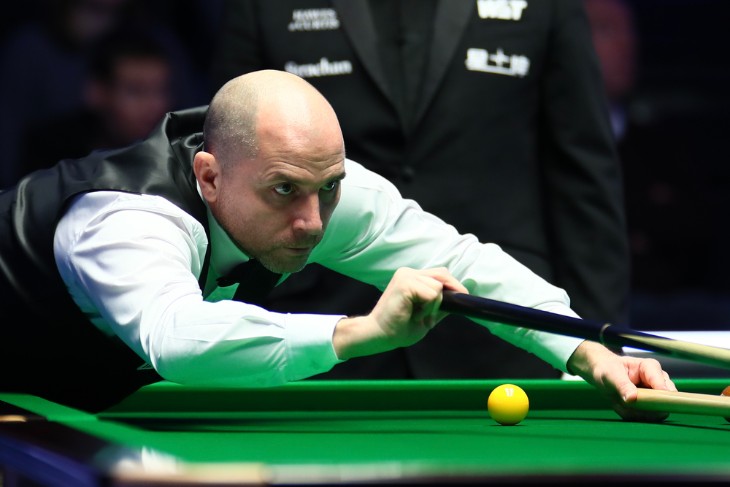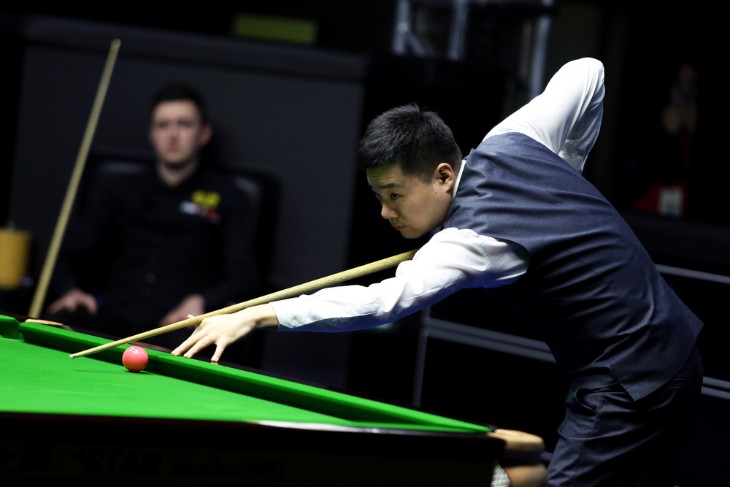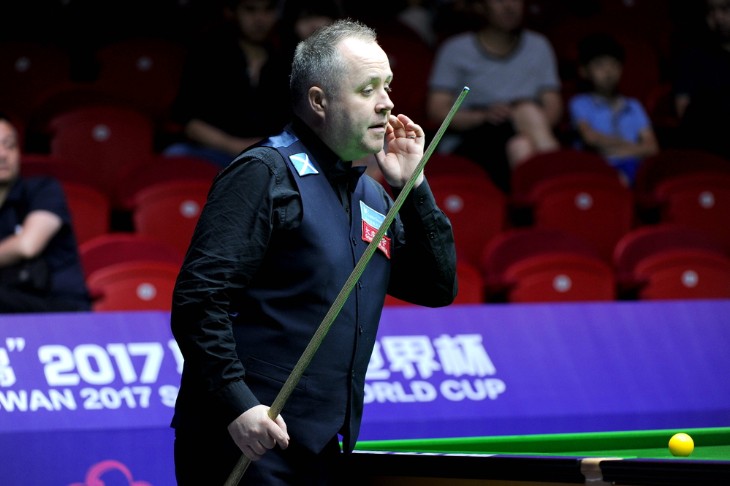When we think of snooker, images of strategic play and sharp precision often come to mind. However, there’s a hidden aspect crucial to a snooker player’s success: physical fitness.
This might come as a surprise to many, as snooker is typically seen as a game focusing more on mental skill than physical prowess. Yet, the reality is that top snooker players pay as much attention to their fitness as they do to their technique.
Physical fitness in snooker goes beyond just being in good shape. It plays a pivotal role in enhancing a player's endurance, concentration, and overall performance. During long matches, which can sometimes last for hours, players need to maintain high energy levels and sharp focus.
Moreover, fitness helps in preventing injuries. Snooker involves repetitive movements which can strain muscles and joints. Regular exercise and proper conditioning ensure that players stay flexible and less prone to injuries.
In this article, we’ll explore how top snooker players incorporate fitness into their routines. We’ll look at their training regimes, covering aspects like cardiovascular fitness, strength, flexibility, and mental well-being.
Understanding the Physical Demands of Snooker: More Than Meets the Eye
Snooker might look like a game that’s all about calm precision and strategic thinking. Yet, it places significant physical demands on players that often go unnoticed. To excel in snooker, players need more than just a steady hand and a sharp eye. They require good physical health, endurance, and a strong core.
Firstly, snooker players spend hours practising and playing. This requires stamina. They need to stay focused and alert for long periods, which is where physical fitness plays a key role. Regular cardiovascular exercises, like jogging or cycling, help build this stamina. They keep the players’ energy levels high, allowing them to maintain concentration during long matches.
Another important aspect is core strength. A strong core is essential in snooker. It helps players maintain balance and stability while making shots. Exercises targeting the abdomen, back, and pelvis are therefore a key part of a snooker player’s fitness routine. These exercises help in perfecting posture and enhancing shot accuracy.
Flexibility is also crucial. Snooker requires players to take shots from various angles and positions. Being flexible helps in reaching these positions more easily and reduces the risk of muscle strains. Regular stretching exercises and routines like yoga play a big part in keeping snooker players nimble and flexible.
Lastly, snooker is a game of repetition. The same movements are performed over and over. Without proper physical conditioning, this can lead to muscle and joint issues. A well-rounded fitness regime ensures that players can withstand these repetitive motions without injury.

Cardiovascular Fitness: The Heart of Snooker Stamina
Cardiovascular fitness is a key factor in a snooker player's success. It's all about building the stamina needed for long matches. Snooker matches can sometimes last for hours, demanding high levels of energy and concentration. This is where a strong heart and lungs come into play.
Top snooker players often include cardiovascular exercises in their daily routines. Activities like running, cycling, or even brisk walking are popular choices. These exercises strengthen the heart and lungs, increasing stamina. This means players can stay focused and sharp during lengthy matches, which is crucial for winning.
But it's not just about lasting through a long match. Good cardiovascular fitness also helps with recovery. After a demanding game, players need to regain their strength quickly, especially during tournaments with back-to-back matches. With a fit cardiovascular system, players can recover faster, stay fresh, and be ready for their next challenge.
These exercises also benefit mental health. Cardiovascular activities release endorphins, which are chemicals in the brain that act as natural mood lifters. This can be a big help in a high-pressure sport like snooker. Players need to be mentally strong, and regular cardio can help maintain a positive mindset and reduce stress.
In addition, these exercises help in weight management. Keeping a healthy weight is important for snooker players. It helps in maintaining agility and ensures that they can move around the snooker table with ease.
Strength and Flexibility Training: Building a Strong Foundation
Strength and flexibility are crucial for snooker players, forming the foundation of their physical fitness. These aspects of training help players stay stable, precise, and injury-free.
Strength training, especially for the core muscles, is vital. A strong core improves balance and stability, which is essential for making accurate snooker shots. Simple exercises like planks, sit-ups, and back extensions are often part of a player's routine. These exercises strengthen the muscles around the abdomen, back, and hips, giving players the solid base they need for precise movements.
Flexibility is equally important. Snooker requires players to stretch and bend into different positions while aiming and shooting. Good flexibility allows for a wider range of motion, making it easier to reach those tricky shots. Regular stretching, yoga, or pilates are popular among snooker players. These practices not only enhance flexibility but also help in preventing muscle strains and injuries.
Moreover, strength and flexibility training have benefits beyond just physical performance. They contribute to overall well-being, reducing the risk of chronic pains often associated with a sedentary lifestyle. For a sport that involves standing for long periods, this is particularly beneficial.
In addition, a balanced combination of strength and flexibility training ensures that players can handle the repetitive nature of snooker without risking overuse injuries. Repetitive strain injuries are common in sports with repeated motions, and snooker is no exception. By strengthening and stretching the muscles regularly, players can protect themselves from such risks.
Mental Fitness: The Invisible Muscle in Snooker
Mental fitness is as crucial as physical fitness in snooker. It's the invisible muscle that can make or break a player's game. Snooker is not just about hitting balls; it's about strategy, focus, and mental endurance. Top players know this and work hard to keep their minds sharp and resilient.
One key element of mental fitness is concentration. Snooker matches can be long, and players need to stay focused throughout. Distractions can lead to mistakes, so having a clear mind is vital. Many players practice meditation or mindfulness to improve their concentration. These techniques help them stay calm and focused, even under pressure.
Stress management is another important aspect. Snooker can be a high-pressure game, especially in big tournaments. Players need to manage their stress to perform well. Along with meditation, some players use breathing exercises or other relaxation techniques. These methods help them keep cool and composed, even in tense situations.
Positive thinking is also a big part of mental fitness. Snooker players must believe in their abilities and maintain a positive attitude. This mindset helps them bounce back from setbacks and stay confident under pressure. Many players work with sports psychologists to build this positive mental approach.
Lastly, mental fitness includes dealing with fatigue. Long hours of practice and play can be mentally draining. Players need to know when to take breaks and how to recharge. This might mean getting enough sleep, spending time with family and friends, or engaging in hobbies outside of snooker.
Diet and Nutrition: Fuelling Peak Performance
A proper diet is crucial for top snooker players. It's not just about eating to stay fit; it's about eating the right foods to fuel peak performance. Players carefully choose what they eat to ensure they have the energy and focus needed for long matches.
A balanced diet is key. This means eating a mix of different foods. Players include fruits and vegetables for vitamins and minerals. These nutrients are essential for keeping the body healthy and energetic.
Protein is also important in a player's diet. It helps repair and build muscles, especially after training. Players often eat lean meats, fish, eggs, or plant-based proteins. These foods keep their muscles strong and help with recovery.
Hydration is another vital aspect. Drinking enough water is essential for maintaining concentration and avoiding fatigue. Players make sure to drink plenty of water throughout the day, not just during matches.
Snack choices matter as well. Players avoid sugary snacks that can lead to energy crashes. Instead, they choose healthier options like nuts, seeds, or yoghurt. These provide lasting energy and keep players sharp.
Meal timing can also affect performance. Eating the right foods at the right times is important. Players often eat a meal with carbohydrates and protein a few hours before playing. This gives them the energy they need for the game.
Case Studies: Fitness Routines of Renowned Snooker Champions
Looking at the fitness routines of renowned snooker champions can teach us a lot. These players show how a good fitness regime can lead to success in snooker. Each player has their approach, tailored to their needs and goals.
Ronnie O Sullivan, as he revealed to the press, focuses heavily on cardiovascular fitness. He includes running and cycling in his routine. This helps him maintain high energy levels during long matches. His approach shows how important stamina is in snooker.
Nutrition is also a key part of these champions' routines. Players like Mark Allen, who was often based for their overweightedness, now stick to a diet rich in lean proteins, fruits, and vegetables. This ensures that they stay hydrated, especially during tournaments. His diet plan demonstrates the role of good nutrition in maintaining peak performance.
Mental fitness is not overlooked. Some champions practise meditation and mindfulness. This helps them stay focused and calm under pressure. Their mental fitness routines show the importance of a strong, clear mind in snooker.

Incorporating Technology and Innovation in Training
In the world of snooker, technology and innovation are changing how players train. Modern tools are helping players enhance their fitness routines, making training more effective and efficient.
Wearable technology is a big trend among snooker players. Devices like fitness trackers monitor heart rate, sleep patterns, and activity levels. This helps players understand their bodies better. They can see how their training affects their fitness and make adjustments as needed. For example, a player might notice they need more rest and adjust their training schedule.
Apps are another tool players use. There are many apps designed to help with fitness and nutrition. Players can track their diets, plan workouts, and set fitness goals. These apps make it easier to stick to a routine and see progress over time.
Video analysis software is also popular. Players use it to review their games and practice sessions. This technology lets them analyze their movements and techniques in detail. They can spot areas for improvement and work on them in their training.
Virtual reality (VR) is a newer tool in snooker training. Some players use VR to simulate match situations. This helps them practice their mental game and strategy without the need for a physical table.
The Role of Coaches and Fitness Trainers
Coaches and fitness trainers play a vital role in the success of snooker players. They are key figures in developing and maintaining a player’s fitness regime. Their expertise and guidance can make a significant difference in a player’s performance.
A coach’s main job is to improve a player’s snooker skills. They work on techniques, strategies, and game plans. But coaches also pay attention to a player’s overall fitness. They make sure players are physically prepared for matches. This includes advising on exercises that enhance stamina, strength, and flexibility.
Fitness trainers focus more on the physical aspect. They create tailored fitness programs for players. These programs include a variety of exercises designed to meet the specific needs of a snooker player. Trainers make sure players are doing exercises correctly and safely. They also help players set fitness goals and track their progress.
Nutrition advice is another area where coaches and trainers assist. They often work together to plan diets that support a player’s training regime. They ensure players eat the right foods at the right times. This helps players maintain energy levels and recover quickly after matches.
Mental fitness is also a part of their job. Coaches and trainers help players develop a strong mindset. This includes techniques to improve focus, manage stress, and stay positive. They help players build the mental toughness needed for high-pressure snooker matches.
Bottom Line
Fitness is a critical factor in achieving success in snooker. This article has highlighted how top players integrate fitness into their routines. It's clear that being fit is not just about physical strength; it also includes stamina, flexibility, mental well-being, and proper nutrition.
The role of technology in training cannot be overlooked. Wearables, apps, and video analysis tools help players optimize their fitness routines. Coaches and fitness trainers are invaluable, providing expertise and guidance in all these areas.
For more information:




.webp)


 (1).webp)




















